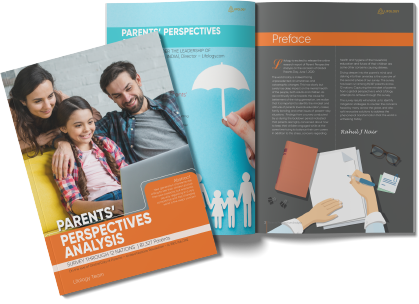Forget IQ or technical skills for a moment. The key to unlocking your next promotion might lie in a different kind of intelligence – emotional intelligence (EI). It’s the ability to understand and manage not just your own emotions, but also those of the people around you. Imagine being able to effectively coach your team, navigate tricky situations with ease, and foster a truly collaborative environment. That’s the power of emotional intelligence in action.
While the term itself was coined in the 1990s, it’s recently gained significant traction. In fact, according to reports a whopping 71% of employers now value emotional intelligence more than technical skills when evaluating candidates. So, what exactly does emotional intelligence encompass?
The Breakdown: Core Skills of Emotional Intelligence
Emotional intelligence can be broken down into a few key skills:
- Self-Awareness: This is the foundation – being able to identify and name your own emotions. Are you feeling overwhelmed? Frustrated? Recognizing your emotional state is the first step to managing it effectively.
- Harnessing Emotions: Our emotions can be powerful tools. Emotional intelligence allows you to leverage them to your advantage. Feeling motivated? Channel that energy into tackling a challenging project.
- Managing Emotions: Sometimes, emotions need to be regulated. Emotional intelligence equips you to manage your own emotional responses and help others do the same in heated situations.
Why Emotional Intelligence Matters
As psychologist Daniel Goleman highlights, emotional intelligence isn’t a replacement for traditional skills, but rather a crucial complement. Technical skills and a high IQ are important, but they’re just the starting point. Leadership roles require a different kind of savvy – the ability to connect with people, navigate complex situations, and inspire those around you. That’s where emotional intelligence comes in.
By developing your emotional intelligence, you’ll equip yourself with the tools to not only excel in your current role, but also thrive in future leadership positions.
How to Build Your EQ
Mastering the technical aspects of your job is crucial, but for true leadership success, emotional intelligence (EQ) is the secret weapon. Here are some actionable steps you can take to develop your EQ and become a more effective leader:
- Cultivate Self-AwarenessJournaling: Reflect daily on your emotions and their impact on your decisions, interactions, and meetings. This helps you identify patterns and adjust your approach in the future.
- 360-Degree Feedback: Seek feedback from colleagues, managers, and peers alongside a self-assessment. Comparing these perspectives can reveal blind spots and areas for improvement.
- Active Listening: Truly listen to understand, not just to respond. Minimize distractions, focus on the speaker, and acknowledge their points with nods and paraphrasing.
- Track Your Triggers: Pay close attention to your emotional responses, especially strong ones. Identifying the cause will help you understand your own emotions and those of others.
- Invest in Online Courses: Many online programs, like HBS Online’s Leadership Principles course, offer in-depth EQ training, often with 360-degree assessments to pinpoint your strengths and weaknesses.
Remember, emotional intelligence isn’t just about self-awareness. It’s also about mastering these essential leadership qualities:
- Embrace Feedback and Responsibility: Be open to constructive criticism and take ownership of your actions.
- Learn from Mistakes: Don’t dwell on them – move forward with the lessons learned.
- Set Healthy Boundaries: Learn to say no when necessary to avoid burnout and maintain a healthy work-life balance.
- Open Communication: Communicate your feelings with others to build trust and understanding.
- Collaborative Problem-Solving: Find solutions that benefit everyone involved.
- Develop Empathy: Step into the shoes of others to understand their perspectives.
- Refine Your Listening Skills: Give others your full attention and truly hear what they’re saying.
- Understand Your Motivations: Reflect on why you do what you do to guide your decisions and actions.
- Practise Open-Mindedness: Avoid judgements and embrace diverse viewpoints.
By developing your emotional intelligence, you’ll become a more well-rounded leader, fostering a positive work environment and inspiring those around you.







